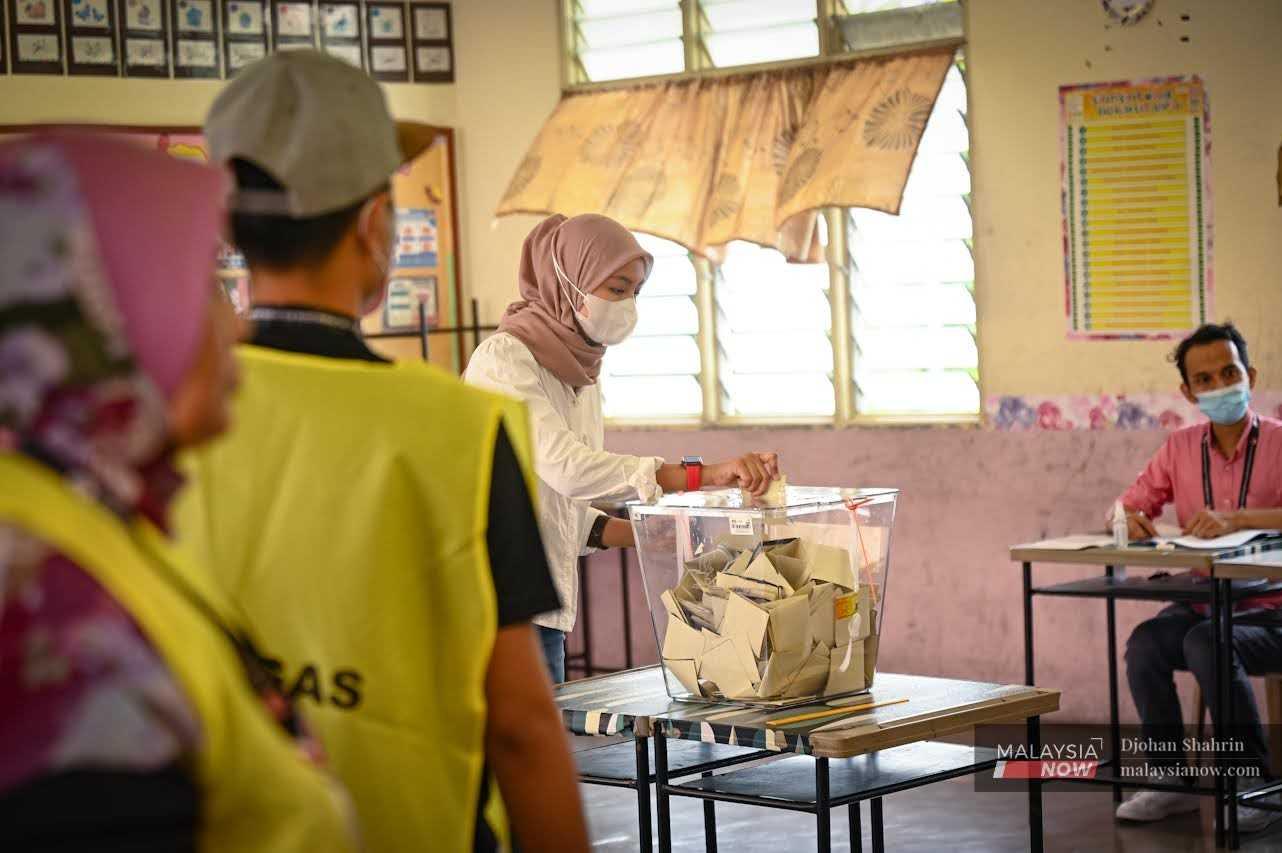Show the math behind 31% Malay support, analyst urges PH
Mazlan Ali says the number given by Anwar Ibrahim is only an approximation and that any discussions on the level of support enjoyed by a political party will remain subjective.
Just In
An analyst has urged Prime Minister Anwar Ibrahim to explain the methodology behind his recent statement that his Pakatan Harapan (PH) coalition won 31% of the Malay vote at the 15th general election (GE15) last year.
Speaking to MalaysiaNow, Mazlan Ali said the figure was only an approximation.
"They need to look at the ballot boxes in each parliamentary constituency and compare it to the Malay and non-Malay demographics," Mazlan, of Universiti Teknologi Malaysia, added.
Anwar had given the figure at a press conference on Feb 6 to refute previous data showing only a small percentage of the community behind his pact.
Citing the results of a survey conducted by a PKR research team, he said it was not true that PH had the support of only 19% of the Malays.
He said Malay support for PH was low in states like Kelantan and Terengganu, but stood at over 50% in Selangor, Penang and Negeri Sembilan.
He added that Malay support for PH was the highest in the federal territories.
Analyst Bridget Welsh previously said that PH only had the support of 11% of the Malay community.
Mazlan said that researchers would not possess detailed data as they would not know the ethnicity of voters unless the serial number on each ballot paper could be matched with the voters' information.
"That's impossible, and the votes are all secret," he added.
Mazlan, who conducted his own survey ahead of GE15 in urban, semi-urban and rural areas, said PH had about 18% of the Malay vote.
He added that a physical survey would be more accurate than studies based on phone calls, a method used before by Invoke, the think tank led by PKR vice-president Rafizi Ramli.
According to his research, he said, Malay support for PH was around 25% in urban areas, 18-20% in semi-urban areas and 7% in rural areas.
"But this figure of 18% would not necessarily have been reflected at GE15," he added.
"It's possible that decisions were made at the last minute. Some respondents had no problem revealing which party they support, while others hadn't made up their minds.
"And the percentage of those who did not know or who were on the fence was more than those who said they had made up their minds."
Mazlan said the level of Malay support for PH could have risen to 25% after the voting process.
He said PH had performed well in Malay-majority areas on the west coast, throwing doubt on the previous estimate of just 11% of support from the community.
PH won the most seats at GE15, sweeping to victory in 82 parliamentary constituencies.
It was followed by Perikatan Nasional, which won 74, and Barisan Nasional which won 30.
The rest were won by parties from Sabah and Sarawak.
At the end of the day, Mazlan said, any discussions on the level of support enjoyed by a political party would remain subjective.
"Even the findings of studies can change," he said.
"How participants respond at the time of the survey is not necessarily the same as it was when they cast their votes."
Subscribe to our newsletter
To be updated with all the latest news and analyses daily.
